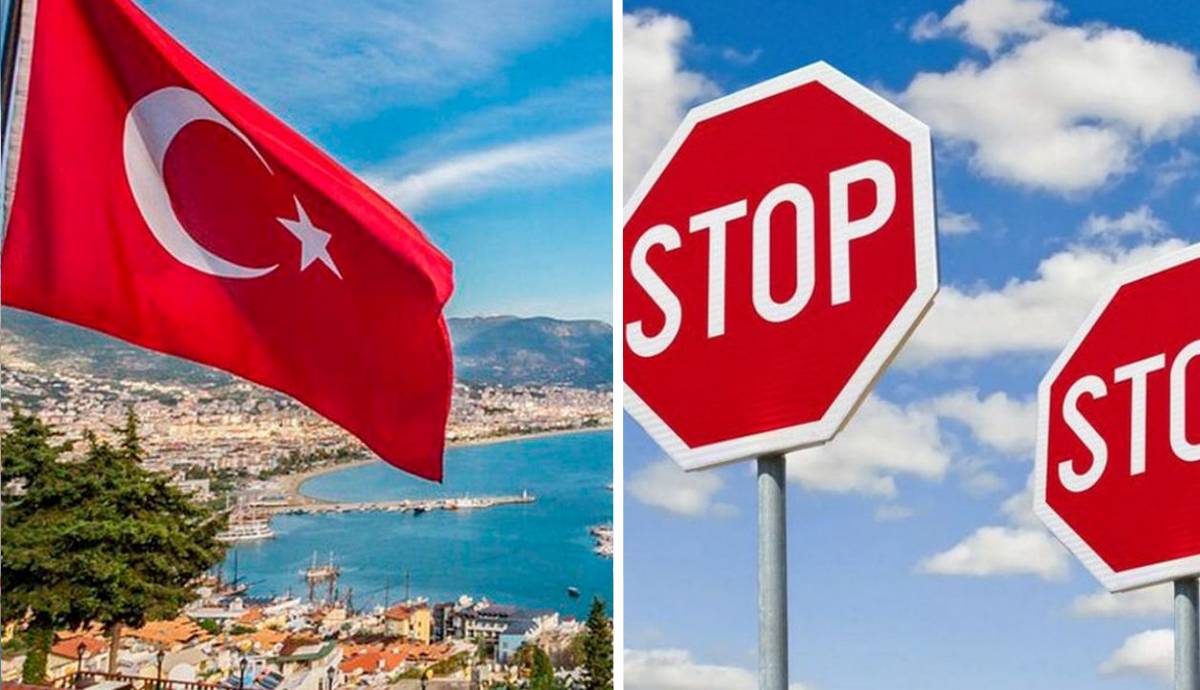Turkey is closed to foreigners – such sad news was announced on her blog by a professional traveler who bought an apartment in the resort province of Antalya. The tourist said that her apartment and the housing of a large number of foreigners were automatically included in the “black list” of the republic. “The main question: what to do to those who bought real estate in the area from the “black list”?” – the blogger was puzzled by the question.
According to the tourist, the Turkish authorities have included 1,169 areas on the stop list in which foreigners cannot settle. The reason for the radical decision is the huge influx of travelers who want to move to their own or rented apartments in a warm country on the PMP: since February, a record number of foreigners have arrived in the republic.
“According to the rules, no more than 20% of foreigners should live in each district of Turkey, but many of them have long exceeded this limit. At first, the authorities tried to weed out those who rent apartments, and now it has also affected property owners,” she explained.
It was clarified that foreigners who bought real estate in Istanbul, Antalya, and other big cities and their surroundings “caught up”. In particular, the girl gave a list of “forbidden” places using the example of Alanya, a resort city in the province of Antalya. According to her, from July 1, 2022, the following areas will no longer be available for obtaining a residence permit in Alanya:
- Avsallar
- Kargijak
- Castle
- Mahmutlar
The blogger bought a house under construction in the village of Avsallar and now worries that she will not be able to live there legally. “There is still no 100% clarity. But most likely, no one can now issue a primary residence permit in prohibited places (the exception is family reunification and marriage with a Turkish citizen). As before, any foreigner can issue a residence permit in “open” areas,” the tourist said.
The Turkish authorities pointed out that the new rules are temporary, but as you know, nothing is more permanent than temporary solutions. The author noted that so far everyone is sure that the restrictions were introduced to “thin out” overpopulated areas and reduce the demand and price for renting real estate. “It has become difficult for Turks in their country to breathe due to the influx of foreigners (migrants from Syria, refugees, and simply those who want to cross the PMP to the Mediterranean Sea). They can be understood.”
To the question: “What should those who bought real estate in the area from the “black list” do?” The blogger gave three answer options:
First – if the apartment is bought for rent, then nothing has changed for foreign owners of Turkish real estate. “Get the TAPU (property certificate issued by the Cadastre Office upon transfer of ownership rights, the main document of the owner according to Turkish law) and rent the property, no problems,” the tourist reassured.
Second – if foreigners planned to live on the territory of Turkey for 60+30 days once every six months, then they are also fine. For this, it is not necessary to issue a residence permit, only a foreign passport is required.
Third – if there was a desire to issue a residence permit and live in your apartment permanently, then you should be patient. It is about this group of foreigners that Turkey has introduced restrictions. “Someone claims that a residence permit under TAPU will still be issued even in “forbidden” areas. I hope so, but I am ready to adapt and temporarily live in my apartment as a “tourist”. I will get a residence permit when the ban is lifted,” the author said about her intentions.
Earlier, DIP wrote that “Antalya is on fire again.”

